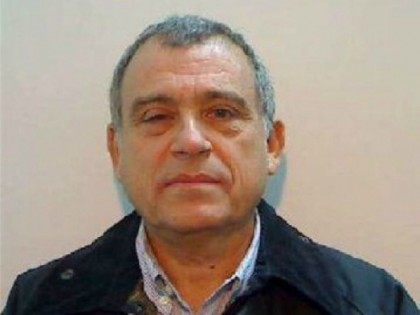Argentina Requests Arrest of Iranian Interior Minister for Role in Israeli Center Bombing
Argentina requested the arrest of Iranian Interior Minister Ahmad Vahidi for the 1994 bombing of the Argentine-Israeli Mutual Association.
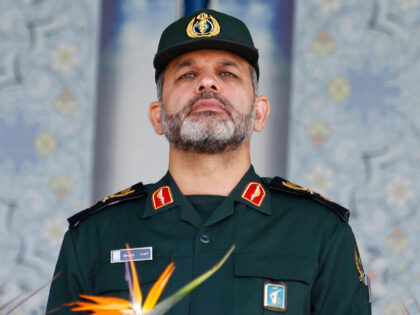
Argentina requested the arrest of Iranian Interior Minister Ahmad Vahidi for the 1994 bombing of the Argentine-Israeli Mutual Association.

Argentina is considering a formal inspection of a Chinese “space station” on Argentine territory built during a previous socialist presidency, the government confirmed on Tuesday.
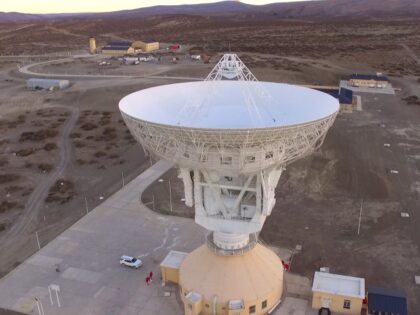
Prosecutor Mario Villar is requesting an increase to the six-year prison sentence for former President Cristina Fernández de Kirchner.
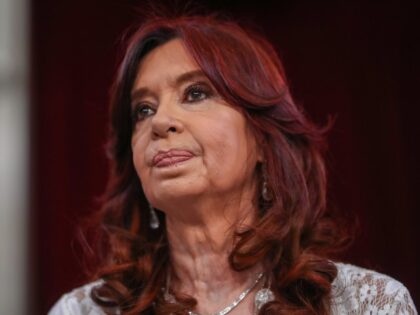
Supporters of President Javier Milei cleaned the streets of Buenos Aires, Argentina, on Sunday evening following his inauguration.
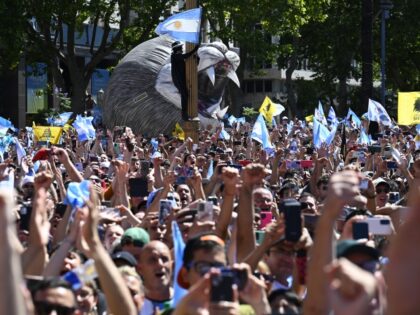
Socialist former President of Argentina Cristina Fernández de Kirchner waved her middle finger at a crowd of supporters of the nation’s new president, Javier Milei, on Sunday, a gesture reportedly in response to jeers.

Libertarian economist Javier Milei was inaugurated president of Argentina on Sunday, flanked by a host of heads of state – including Spanish King Felipe VI and Ukrainian President Volodymyr Zelensky – and surrounded by thousands of supporters in Buenos Aires.
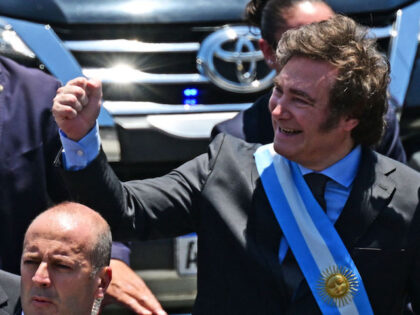
A court in Argentina overturned the dismissal of a corruption probe into outgoing Vice President Cristina Fernández de Kirchner.

Alberto Fernández, the socialist outgoing president of Argentina, lambasted his Vice President Cristina Fernández de Kirchner (no relation) on Wednesday for allegedly demanding “obedience” in his first interview since his Peronist coalition lost the presidential election to outsider libertarian Javier Milei on Sunday.
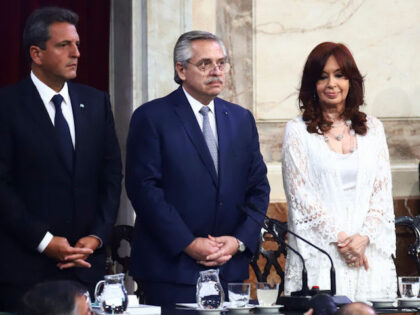
Socialist Venezuelan dictator Nicolás Maduro called libertarian economist and Argentine President-elect Javier Milei a “neo-nazi.”
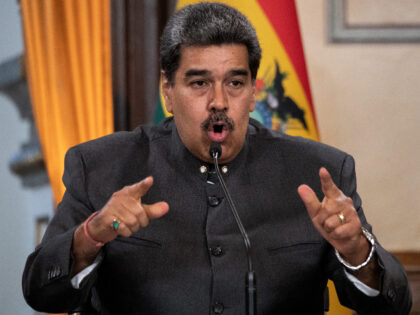
Argentina’s libertarian President-elect Javier Milei confirmed on Monday that he would make visits to both Israel and the United States before his inauguration on December 10, trips he described as “spiritual” and intended to meet with rabbis whom he had consulted during the election.
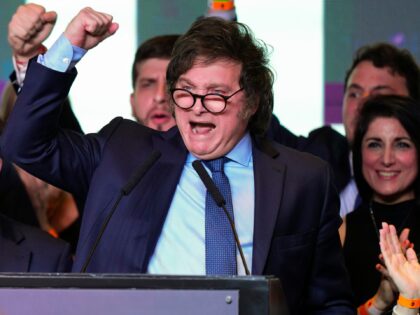
Argentine libertarian economist Javier Milei formally debuted his political coalition’s campaign platform on Tuesday, a formal requirement for him to run in the October 2023 presidential elections.
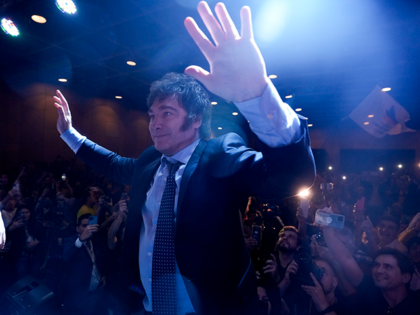
Alberto Fernández, the president of Argentina, announced this weekend that he would not be a candidate in the 2023 presidential election.
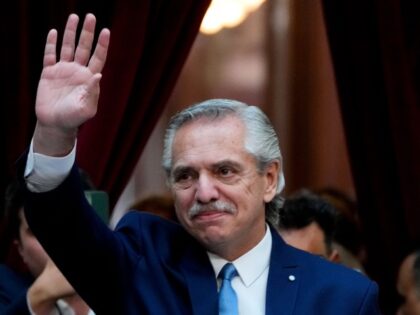
The end of 2022 brings with it a host of campaign seasons across the planet, set to change the way major states are governed and how they interact with each other.
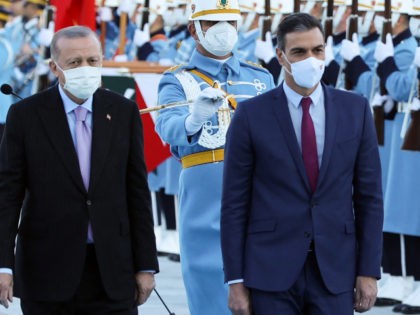
The election of convicted felon Luiz Inácio Lula da Silva to the presidency of Brazil in October – a hardline socialist who had, in his previous presidencies, been seen as the leader of the international left – prompted a wave of celebrations among the world’s Marxists that Latin America had finally fallen into near-complete leftist rule.
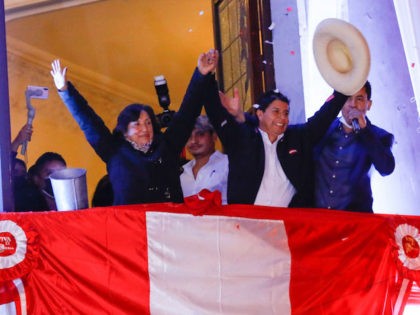
An Argentine federal court on Tuesday found the nation’s current vice president and former President Cristina Fernández de Kirchner guilty of corruption and sentenced her to six years in prison.

A man identified as 35-year-old Fernando Andres Sabag Montiel was arrested late Thursday evening after apparently attempting to assassinate the vice president of Argentina, Cristina Fernández de Kirchner.

Sen. Ted Cruz (R-TX) sent a letter to Secretary of State Antony Blinken on Thursday urging the State Department to consider imposing sanctions, including a ban on entering America, on Argentine Vice President Cristina Fernández de Kirchner, one of the region’s most prominent leftists.

A federal prosecutor in Argentina called for a 12-year prison sentence for the nation’s current Vice President and former President Cristina Fernández de Kirchner on Monday.
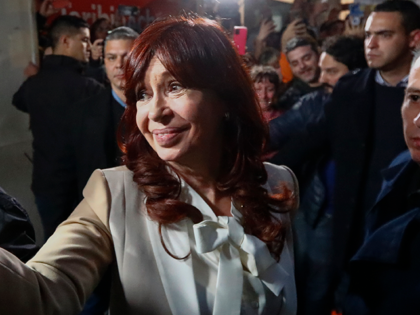
Argentine Ambassador to China Sabino Vaca Narvaja scolded those who “demonize communism” and praised the Chinese Communist Party in an interview given to China’s state-run Global Times on Tuesday.
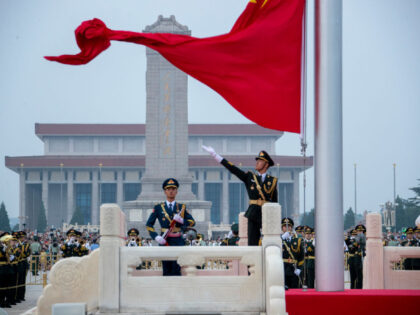
Argentine socialist Vice President Cristina Fernández de Kirchner once again faced charges of extreme corruption this week, the Argentine news site Infobae reported on Monday, citing accusations by prosecutor Diego Luciani that Fernández engaged in an “extraordinary” level of corruption during her presidency from 2007 to 2015.
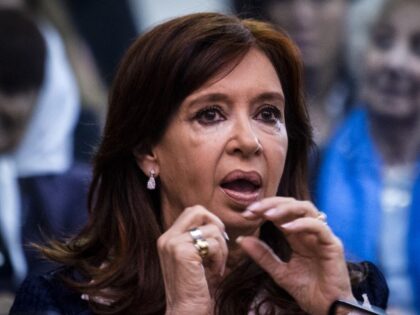
Argentina’s Vice President Cristina Fernández de Kirchner reposted remarks by White House Press Secretary Jen Psaki this week claiming that soaring meat prices were the product of corporate “greed” in an apparent attempt to defend her socialist administration’s woeful economic policies.
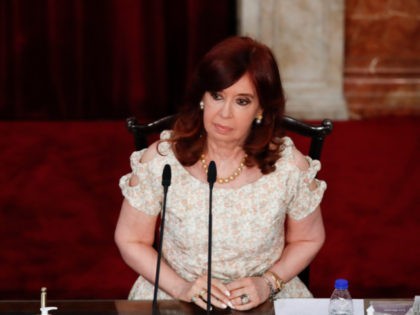
Argentina’s socialist Peronist coalition received a pummeling at the polls on Sunday, losing the Senate for the first time since 1983 and suffering major defeats in Buenos Aires, the capital and largest city.

Anti-socialist demonstrations took place across Argentina this weekend against the administration of socialist President Alberto Fernández, whose management has led to a severe economic crisis.
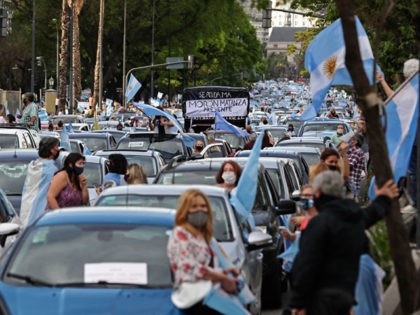
Peronist Alberto Fernández assumed power as president in Argentina on Tuesday, a return to power for the socialists after predecessor Mauricio Macri failed to stem an economic decline triggered by a decade of leftist rule.
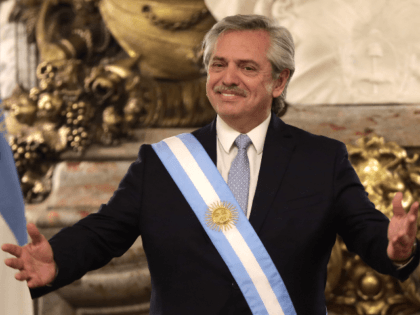
Leftist candidate Alberto Fernández won Argentina’s presidential elections on Sunday, ousting the incumbent Mauricio Macri in a campaign dominated by concerns over the country’s ongoing economic crisis.
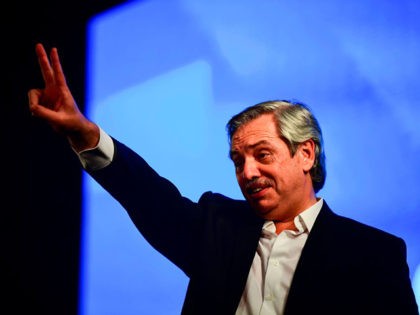
Argentina’s Supreme Court suspended former leftist president Cristina Fernández de Kirchner’s corruption case Wednesday, putting her one step closer to running again in this year’s presidential election.
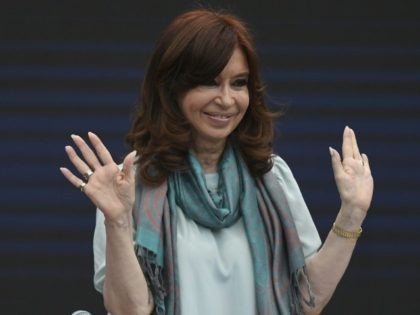
BUENOS AIRES, Argentina — Former President Cristina Fernandez de Kirchner will face trial on charges she covered up the role of Iranians in a 1994 terrorist bombing at a Jewish center in Argentina’s capital, judicial authorities announced Monday.

A federal judge in Argentina has deemed the death of a prosecutor who accused high-ranking government officials, including the former president, of covering up Iran’s involvement in the nation’s deadliest terror attack as an aggravated homicide.
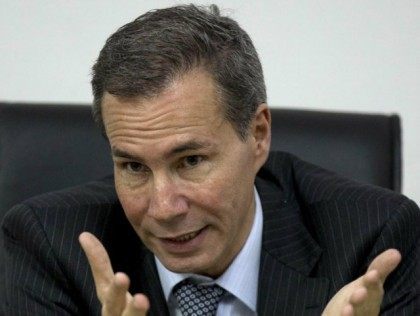
Argentina’s former socialist President Cristina Fernández de Kirchner has claimed she is the victim of “political persecution” over allegations she covered up that she aided Iranian terrorists.

Thousands gathered in Buenos Aires, Argentina, Wednesday to commemorate the second anniversary of the killing of Alberto Nisman, a high-level prosecutor who was found lying in a pool of his own blood the night before he was to accuse former president Cristina Fernández de Kirchner of aiding Iranian terrorists.
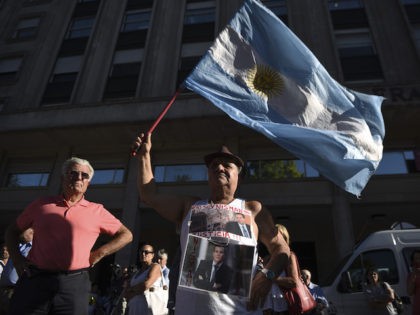
Former President of Argentina Cristina Fernández de Kirchner may be indicted in a sprawling money laundering case should the judge presiding accept federal prosecutor Guillermo Marijuan’s request to bring her into the investigation. Kirchner will be testifying regarding a separate case on Wednesday.

“Nisman was killed by a group related to the former government,” the former head of Argentina’s intelligence agency reportedly testified this week, squarely blaming former president Cristina Fernández de Kirchner and her allies for killing a high-profile prosecutor investigating the Iranian government’s role in the nation’s worst terrorist attack ever.
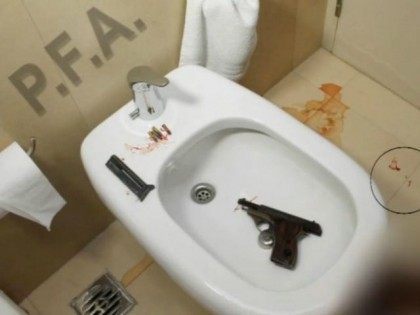
The prosecutor in charge of the investigation into the death of Alberto Nisman has deemed his death a “homicide” and seeks to bring the case to a federal court. Nisman, an Argentine prosecutor investigating Iranian involvement in a 1994 terrorist attack, was found dead of a gunshot wound to the head in his apartment in January 2015.

Argentina’s new president, Mauricio Macri, is fundamentally shifting his country’s economy by dumping Marxism, curing defaults and sparking a capitalist revival.
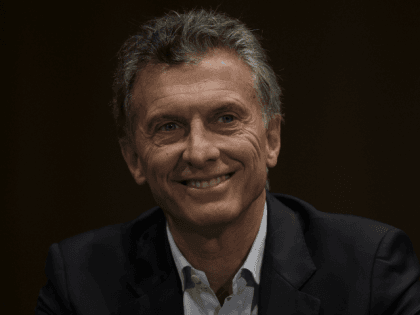
A year after police found Alberto Nisman’s body in his bathroom, the result of a gunshot wound, thousands of Argentines marched on Buenos Aires demanding justice for the prosecutor who died a day prior to going before the nation’s Congress to accuse the president of protecting Iranian terrorists.
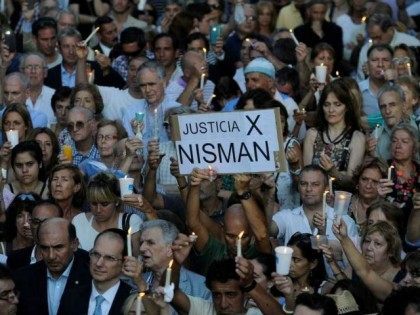
On January 18, 2015, Argentine prosecutor Alberto Nisman was found dead, lying in a pool of blood with a gunshot wound to his head. He was to testify the next day that the nation’s president and foreign minister had brokered a deal with the government of Iran to protect the masterminds of the worst terrorist attack in the Western Hemisphere before September 11, 2001. One year later, the newly elected Argentine government – which may attribute its victory largely to the Argentine people’s revulsion at the leftist incumbents’ mismanagement of the Nisman case – have few answers, but vow justice in a case some in the previous administration appeared to hope was a suicide.

Newly-inaugurated Argentine President Mauricio Macri has established a special Bureau for the Investigation of the AMIA Bombing to investigate Iranian suspects linked to the 1994 terrorist attack on a Jewish center that left 85 people dead, and the shooting of a prosecutor investigating it more than 20 years later.
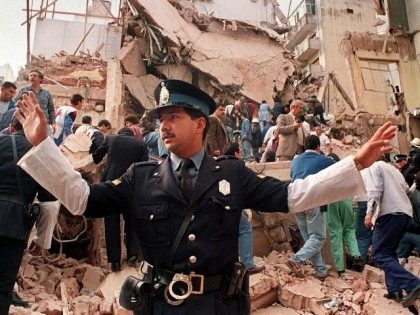
With right-wing Argentine President-elect Mauricio Macri set to assume his position as head of state on Thursday, outgoing President Cristina Fernández de Kirchner has become a major stress point in the transition, issuing multiple decrees, spending government money, and arguing over the details of the inauguration ceremony.

Franklin Nieves, the prosecutor responsible for securing a conviction and 13-year prison sentence for Venezuelan opposition leader Leopoldo López, has defected to the United States and confessed that the evidence he brought to the trial was “100% false.”
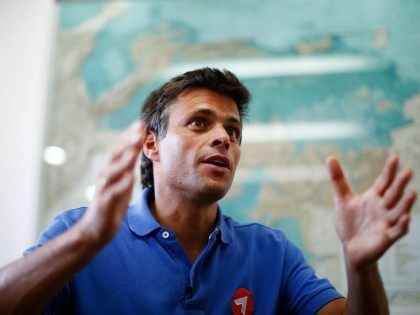
An Argentine ex-spy chief believed to have information on the killing of prosecutor Alberto Nisman in January is reportedly in the United States, hiding from authorities.
